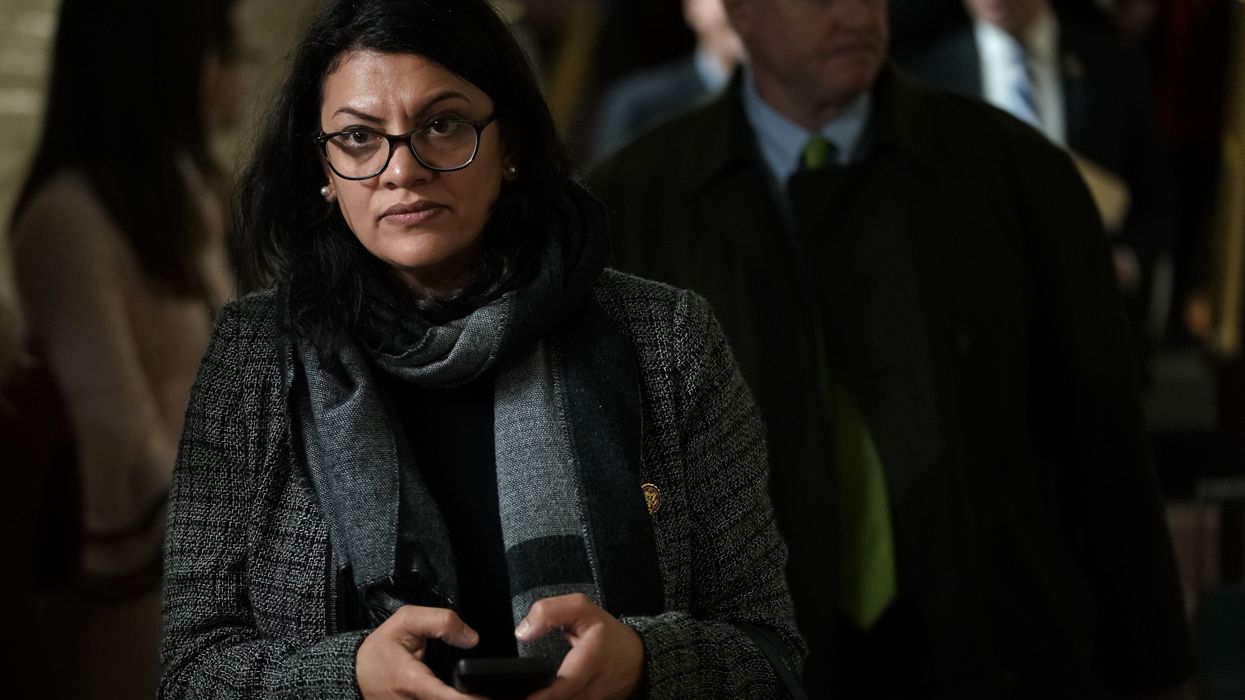
Alex Wong/Getty Images

The rules are clear
Rep. Rashida Tlaib (D-Mich.) is facing accusations that she potentially violated Federal Election Commission rules after campaign finance documents revealed she paid herself a hefty salary using campaign funds after winning her general election last November.
The Washington Free Beacon reported the development.
Campaign finance documents show Tlaib began paying herself from her campaign committee, Rashida Tlaib for Congress, last May after winning her primary election. From May 7 until Nov 6., the day of the general election, Tlaib paid herself $4,000 per month — outside of two checks for $3,000 each in August. In total, Tlaib paid herself $28,000 during the election.
But documents show Tlaib paid herself twice after the general election. The first payment of $2,000 came on Nov. 16, which was consistent with payments in preceding months. A second payment coming on Dec. 1 was for $15,500, a payment more than three times larger than the next largest payment.
The documents do not detail what the large payment was for. The description only states "salary."
FEC regulations allow first-time candidates to pay themselves from campaign funds from the time they win a primary election until the general election. Candidates can pay themselves after a general election, but only for work completed during the election.
"If the candidate wins the primary election, his or her principal campaign committee may pay him or her a salary from campaign funds through the date of the general election, up to and including the date of any general election runoff," FEC rules state. "...no salary payments may be paid beyond the date he or she is no longer a candidate."
An election lawyer told the Free Beacon that Tlaib may have paid herself in such low increments for "political purposes" with the goal of paying herself a lump-sum at the end of the campaign.
The lawyer explained:
On its face, it looks like the $2,000 payment on November 16 might be for the candidate's salary for the first two weeks of November. But given that the election occurred on November 6—i.e., part-way through the first November pay period—I am surprised that this last payment wasn't prorated. In other words, Tlaib stopped being a candidate halfway through this period, but it appears that she kept collecting her full salary as if she was still a candidate throughout the full first two weeks of November.
The $15,500 payment is interesting. It's not 100% clear what she's doing, but what she may have done is to low ball her earlier payments for political purposes (at $2k), knowing full well that she would make up any difference at the end by giving herself a lump sum payment. That would let her skirt negative publicity, of the sort that Alan Keyes generated when he paid himself a sizable salary. An after-the-fact, lump sum payment cuts against the purpose of the rule, which is to help the candidate pay for daily living expenses while campaigning.